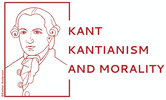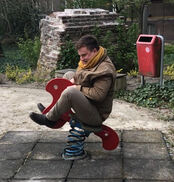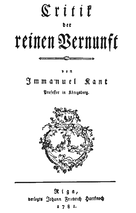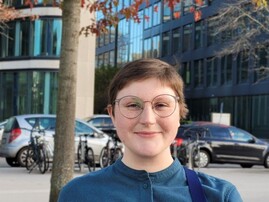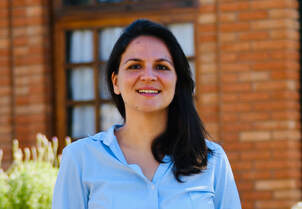Regular Members
|
Pauline Kleingeld
Project Leader My academic interests are in Kant and Kantian philosophy, and more broadly in ethics, political philosophy, and moral psychology. I’ve published two monographs: Kant and Cosmopolitanism: The Philosophical Ideal of World Citizenship (Cambridge UP, 2012) and a book on Kant’s philosophy of history: Fortschritt und Vernunft: Zur Geschichtsphilosophie Kants (Königshausen und Neumann, 1995). More recently, I have been working on foundational issues in Kant’s moral theory, such as the different formulations of the Categorical Imperative, the notion of autonomy, and the idea of freedom. A recurring theme is the importance of Kant’s republicanism, not just for understanding his legal and political philosophy, but also for understanding the foundations of his moral theory. |
Leon van Rijsbergen
PhD Candidate Leon is writing his dissertation on whether Kantian ethics can provide a foundation for a shared morality in a way that sufficiently takes into account the fact of cultural- and possibly agential diversity. Some central questions in his research pertain to the universality of the 'Kantian' agent, the tenability of perfect duties in light of 'the problem of relevant descriptions', and the context-sensitivity of Kantian moral universalism. Leon is primarily interested in matters concerning normative ethics, metaethics and moral psychology. He graduated cum laude from Utrecht University's Research Master: Philosophy. |
|
Marijana Vujosevic
Postdoctoral Researcher Marijana Vujošević is currently a lecturer at Utrecht University. Starting from August, she will work as a postdoctoral researcher at the University of Groningen and as a university lecturer in practical philosophy at Leiden University. Her work contributes to ethics, history of philosophy and contemporary moral psychology. She received her PhD from the University of Groningen in June 2017. In her dissertation, she combined a historical approach to Kant’s ethics with contemporary moral psychology. Her aim was to modify the standard picture of Kant’s moral theory as to accommodate the point that it contains a moral psychology that is also relevant to maxim adoption. In her articles, she has highlighted overlooked aspects of Kant’s concepts of conscience, self-control, virtue, moral feeling, moral strength and weakness. She also attempts to show that some of these concepts are relevant to contemporary moral psychology. |
Vinicius Carvalho
PhD Candidate Vinicius’ PhD research assesses the viability of a constitutivist reading of Kant’s moral theory, both on textual as well as on philosophical grounds (especially in comparison to contemporary constitutivist theories, of Kantian and non-Kantian inspiration). Vinicius is mainly interested in moral theory and metaethics. Before coming to Groningen, he completed his Master’s at the University of Campinas, with a thesis on Kant’s derivations of the Formula of Universal Law in the Groundwork. |
Affiliated Members
|
Suzanna Jacobi
Phd Candidate, Ethics, Social and Political Philosophy University of Groningen Bioethics has tried, from its beginning, to operate independently of theoretical discussions within moral philosophy. However, this ‘anti-theoretical’ tendency has resulted in methods of justification in which theoretical argumentation has been replaced by appeal to common morality and intuition, which are deeply contested as ethical starting points. The main aim of Suus’ project is to critically analyze this 'move away from theory' in bioethics, and, more importantly, to explore the possibility of a Kantian approach to moral justification in bioethics that is a) not problematically dependent on moral intuitions, b) defensible from an ethical point of view, but also c) sensitive to feasibility-constraints and action-guiding for complex bioethical cases. |
Tatiana Llaguno Nieves
Postdoctoral Researcher, Ethics, Social and Political Philosophy University of Groningen Tatiana Llaguno is a postdoctoral researcher at the Faculty of Philosophy of the University of Groningen and has obtained her PhD from the New School for Social Research in New York. In her dissertation, she focused on the concept of dependence, and more specifically, on how to reconcile our socio-natural condition of dependence with our status as free subjects. She has been a Fulbright scholar and a visiting researcher at the Humboldt University of Berlin, thanks to a one-year DAAD doctoral research grant She specializes in social and political philosophy (esp. Hegel and Marx), critical theory, feminist theory and environmental ethics, and maintains an interest in German Idealism. She currently works on a project on the philosophy of work, with Prof. Lisa Herzog. |
Former Members
|
Janis Schaab
Postdoctoral Researcher (2020-2022) Now Assistant Professor, Utrecht University Janis completed his PhD at St Andrews/Stirling in 2019, with a thesis on Kantian constructivism. From 2019 to 2020, he was a Teaching Fellow in Philosophy at UCL. His research primarily focuses on Kantian approaches to ethical theory, but also branches out into adjacent fields like political philosophy. He has published papers on duties to oneself, commitments, rights, and the second-person standpoint. Recently, Janis has developed an interest in the philosophy of conspiracy theories. For more information, visit his personal website. |
Mike Gregory
PhD Candidate (2019 - 2023) Now Postdoctoral Researcher, University of Edinburgh Mike has written his dissertation entitled "The Kantian Republic" under Pauline Kleingeld and Konstantin Pollok. It seeks to productively engage with Kant's early philosophy of right in Kant's lectures on natural right, called the Naturrecht Feyerabend, which has only recently received attention in scholarship. Mike uses Kant's early text in order to give a reading of Kant's republican theory and natural right theory which is both distinct in the history of philosophy and a promising alternative to contemporary neo-republican theories. Mike has also written about Kant's conservative critics, especially A.W. Rehberg, and Kant's ethical thought. For more information about Mike and his work visit his website. |
|
Fiorella Tomassini
Postdoctoral Researcher (2020-2023) Now Researcher, CONICET, Buenos Aires Fiorella's research activity has been centered on Kant's theory of right and its relationship with the German natural law tradition of the 18th century. She is also interested in Kant's reception of Rousseau's theory of social contract, the notion of the general will within his moral and political philosophy, and his theory of property. Fiorella received her PHD from the University of Buenos Aires (2018). Before joining the University of Groningen in October 2020, she was a postdoctoral fellow at the University of Buenos Aires and held a visiting position at the Martin-Luther University of Halle (September 2018- August 2019), supported by a DAAD fellowship and the Marie-Curie Rise project "Kant in South America". |
Elisabeth Widmer
Visiting Postdoctoral Researcher (2023) University of Oslo, Norway Elisabeth is currently a post-doctoral researcher in a project called "The Kantian Foundations of Democracy", which is headed by Professor Reidar Maliks and supported by the Research Council of Norway at the University of Oslo. She earned a Ph.D. in Philosophy with distinction from the University of Vienna in 2022. Her research primarily revolves around exploring post- and neo-Kantian viewpoints from the 19th century that advocate for left-leaning ideas through a Kantian lens. To learn more about her work, please visit her personal website: https://elisabethwidmer.com/ |
|
Caitlin Hamblin-Yule
Visiting Doctoral Researcher (2023) University of Toronto, Canada |
Nicole Martinazzo
Visiting Doctoral Researcher (2022-2023) University of Campinas, Brazil Nicole is a PhD candidate at the University of Campinas. She is writing her dissertation on Kant's Religion, focusing on the concept of ethical community and its relation to the idea of moral progress. Nicole's research interests are in Kant's moral and political philosophy, and his philosophy of history. |
|
Monique Hulshof
Visiting Professor (2017; 2022) University of Campinas, Brazil Monique is a professor of Ethics at the University of Campinas, Brazil. She works on Kant’s moral and political philosophy and is especially interested in Kant’s conceptions of moral autonomy and public use of reason. She received her Ph.D. from the University of São Paulo (2011) and was visiting scholar at the University of Groningen in 2017 and 2022. Her last publications were “Autonomy and practical reason in Kant and the feminist criticisms by Benhabib and Allen” (Routledge, 2022) and “The Collective Dimension of the Idea of Self-legislation in the Lectures NRF and the Groundwork” (Gruyter, 2019). Editor of the Review of the Brazilian Kant Society, Studia Kantiana, also translated Kant’s Critique of Practical reason into Portuguese (Vozes, 2016). |
Lu Zhao
Visiting Doctoral Researcher (2021) Shandong University, China Lu was a visiting Ph.D student from Shandong University, China. Lu has worked with Pauline Kleingeld to study Kant’s practical philosophy. Lu's research is concerned with Kant's moral and political philosophy. The main goal of Lu's research during his time in Groningen has been to present a systematic interpretation of Kant’s cosmopolitanism in his whole philosophy system. |
